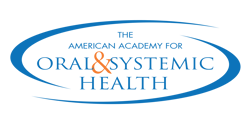When Oral Hygiene Isn't Enough to Address Gum Disease 2022
When Oral Hygiene Isn't Enough to Address Gum Disease 2022
“You need to floss more!”: The mantra of every hygienist who consistently battles bleeding gums with their patients. Does this sound familiar?
Having been a hygienist for almost 40 years, I have been guilty in the past of focusing on the oral hygiene of my patients when it comes to their gum disease.
We now know that periodontal disease is an immune system regulated disease, so wouldn’t it be prudent to address our patients’ immune system during our comprehensive exam? The majority of our immune system originates in the gut, making it critical that we address gut health if we are going to be thorough in our investigation of all factors contributing to our patient’s disease. For that reason our practice partners with a gut health specialist, Stacey Shepard, Lac, CGP, and in the passage below, she explains this relationship:
“The digestive system is home to approximately 80% of the immune system. The gut associated lymphatic tissue is a major storehouse for immune system cells, as well as a production site for antibodies, and a primary line of defense from pathogenic invaders. Its many jobs are of utmost importance for the health of the entire body, but its work is absolutely dependent upon the help and hard work of the beneficial microorganisms residing nearby.
"Beneficial microorganisms have a plethora of vital functions, but some of the most important, which we will highlight today, pertain to their relationship to the immune system, to whom they essentially are personal assistants. Without the hard work of these microbial cells, the entire immune system would fall into chaos and become a source of disease itself, as we see with autoimmune disorders.
“One way the beneficial microorganisms affect the immune system, albeit indirectly, is through their role in the breakdown of food and transport of nutrients. They work as messengers, transporters, and digesters, and without them our food would not be broken down properly, remaining in the form of large protein molecules rather than amino acids, for example. Take lactose, for instance. Without the presence of lactic acid bacteria and E. coli, lactose cannot be broken down into galactose and glucose, which the body's cells can further breakdown and use for fuel. Instead, the two molecules remain joined in the form of lactose, which the body's cells are unable to break down and use for fuel. Complicating matters further, most people with beneficial microorganism deficiencies also end up with a permeable gut wall (leaky gut). In the example of lactose, this means that not only is the large lactose molecule not being broken down into its usable form, it's also able to penetrate a compromised gut lining and enter into the immune system.
“This digestive breakdown affects the immune system in two very important ways:
- The production of immune cells depends upon the absorption of nutrients from the foods we eat and supplements we take. Without beneficial organisms fully breaking down and transporting these nutrients, they are rendered useless and either end up floating around in the blood in an unusable state or excreted through the feces or urine. The result for the immune system is depletion, inadequacy, and malnutrition, rendering the system compromised, in many cases severely so.
- A consequence of this breakdown, in time, leads to a permeable gut lining. The lack of digestive completion and subsequent permeability leads to the presence of "foreign" substances in the blood stream. Lactose, for example, should not be penetrating the gut wall in a healthy system, so it's presence sends alarm signals to the immune system. This scenario would not be happening were there not a breakdown in the digestive process, which means that the immune system dealing with these foreign invaders is itself compromised. In time, if the problem is not corrected, a malnourished, over-taxed immune system will fall apart, behave erratically, and began attacking its body's own cells.
In the case of gum disease, this auto-immune component is likely a contributing factor, confounded by a highly processed standard American diet.
There is also the very important issue of opportunity. Pathological microorganisms exist within us all, and in fact many of these microbes have some beneficial contributions. However, it is of extreme importance that these pathological organisms remain in balance, or controlled, by the beneficial ones. The ideal ratio within the human body is 80% beneficial and 20% opportunistic (pathological). At this ratio, the microorganisms are incapable of causing problems because the beneficial organisms are strong enough in number to sufficiently mitigate any issues that may arise. However, the pathological microorganisms are incredibly wise and patient, and given any small window of opportunity they are quick to dominate. Once they have done so, reversing this imbalance can be quite the challenge.”
You may be surprised that when you find gum disease, even in its earliest stages, often time nutritional status is also compromised, which initiates immune system stress.
A good clinician has tools to measure nutritional status and oxidative stress as part of the comprehensive exam. Poor results should trigger questions about digestive health, which can indicate important insights about gut health.
The majority of your patients will present with a diet that lacking in essential nutrients for optimal health. Many times they present with both nutritional deficiencies and leaky gut symptoms. These conditions combined have deleterious consequences on their immune system. Screening for dietary deficiency is a vital component of a dental health provider’s diagnostics and intervention.
